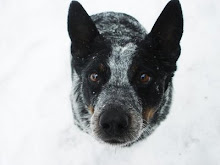Nevada County Arts Council presented its 3rd Annual Sierra Poetry Festival on April 27, 2019 at Sierra College in Grass Valley, attended by some of our most exciting local, national and international poets and performers. In addition to its mainstage event, Sierra Poetry Festival marked National Poetry Month from the rolling foothills of California’s Gold Country to the rugged High Sierra, bringing our rich literary community together to celebrate the spoken word and reach out to brand new audiences in fresh ways. Readings, workshops, music, an activity fair for all ages and youth performances were preceded by a month of pre-festival pop-up poetry events.
CAPITAL PUBLIC RADIO Beth Ruyack interviewed Keynote Speaker, Poet and Pulitzer winner Forrest Gander and Nevada County Arts Council Executive Director Eliza Tudor. I was honored to follow Forrest onstage to read new poems I've written this past winter.
For the morning workshop session, my partner-in-crime Barbara March and I attended Beyond the Self in the Personal Poem presented by Blas Falconer. We explored poems as models to ask Is every poem somehow an intimate glimpse into the poet's life? When does writing the personal poem become problematic? We considered ways to move beyond ourselves while still engaging our own narratives.
Barbara and Ray March participated in the Poetry Fair to spread the word about Surprise Valley Writers' Conference, a unique and beautiful 4 day workshop in rural Cedarville, CA.
In the afternoon session, we joined Marcello Hernandez Castillo for Introspection and Form in Poetry. This workshop inclined towards prose through multiple and spontaneous processes of introspection, We explored taking liberties within the rigid form of such ancient verses as the Ghazal and the sonnet, as well as practiced the possibilities of Duende as described by Lorca.
When I met Sara Borjas at the inn we were both staying in for the weekend, I immediately recognized she had things to teach me. In her workshop, she says definitions of “poetry of witness” are shifting as poets seek to defy the inherent passivity of the term “witness.” Increasingly, poets are interrogating the safety afforded by time and distance, engaging legacies of trauma, including those they have inherited or been proxy to, in order to confront the past and their own participation. She challenges writers and readers to create innovative forms that require the engagement and excavate often-invisible layers of participation, eschewing language of witness in favor of a poetics of active accountability. I want to learn more about witness and engagement for my own writing.
Saturday, July 6, 2019
Subscribe to:
Posts (Atom)





